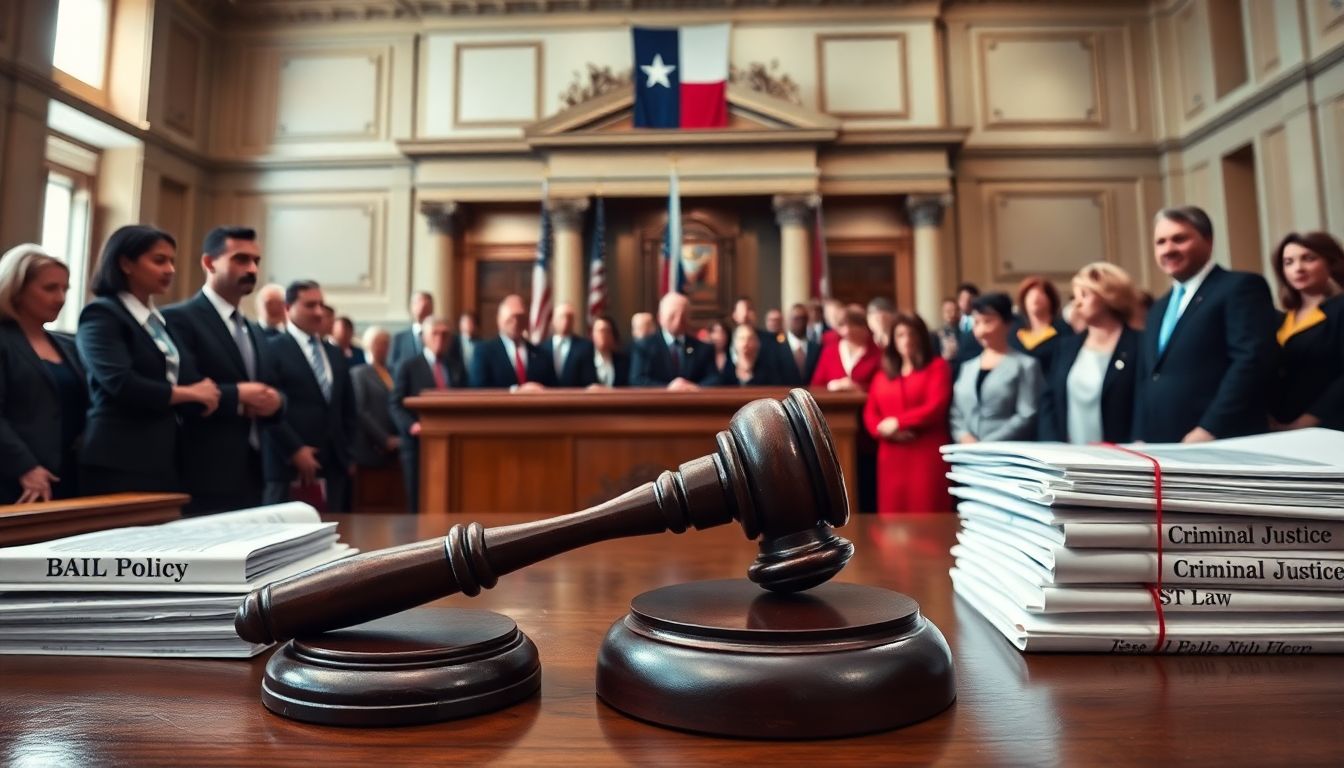Texas Governor Greg Abbott’s proposed bail reform legislation has ignited heated debate over public safety, judicial discretion, and constitutional protections. Supporters believe the reforms are necessary to prevent violent offenders from returning to the streets, while critics warn they could lead to overcrowded jails and disproportionately affect poor and minority defendants.
Governor Abbott’s Bail Reform Agenda
Bail reform has been a priority for Gov. Abbott for years, often citing high-profile crimes committed by individuals released on bail. He is now pushing for a series of legislative and constitutional changes, including:
- Senate Bill 9 (SB 9): Expands the list of crimes for which a defendant can be denied bail, including unlawful possession of a firearm, violations of family violence protective orders, terroristic threats, and fentanyl-related murder. It also empowers prosecutors to appeal bail and mandates pretrial detention based on specific charges.
- Senate Bill 40 (SB 40): Prohibits local governments from using taxpayer funds to post bail through nonprofit agencies that rely on public donations.
- Senate Joint Resolution 1 (SJR 1): A proposed constitutional amendment to deny bail to undocumented immigrants accused of felony crimes upon probable cause.
All three initiatives are strongly backed by Lieutenant Governor Dan Patrick.
Support and Opposition
Some lawmakers and law enforcement officials have voiced support for the reforms. Bexar County District Attorney Joe Gonzales, a Democrat, endorsed the legislation to ensure violent suspects remain detained, aligning with the governor’s public safety agenda.
However, opponents warn the reforms could result in unnecessary pretrial detention for individuals who pose no threat to the community. Civil rights advocates argue the changes would disproportionately affect low-income and minority defendants unable to afford bail, infringing on due process and constitutional rights. Concerns have also been raised about increasing jail overcrowding and added strain on the justice system.
The Case of Edric Wilson
The case of Edric Wilson in Harris County has amplified concerns surrounding delayed justice and jail capacity. Wilson was held in Harris County Jail for 18 years awaiting trial on capital murder and aggravated assault charges. During this time, he was transferred repeatedly between jail and psychiatric hospitals. In 2024, the capital murder charge was dropped for lack of evidence, and he pleaded guilty to aggravated assault.
His case has drawn scrutiny from justice reform advocates and shaken county officials, who are under pressure to reduce the jail population and avoid similar failures in the future.
Looking Ahead
As the Texas Legislature continues to debate bail reform, lawmakers must balance public safety with the rights of the accused. The outcome will shape the state’s criminal justice landscape and affect the lives of thousands of Texans — both inside and outside the courtroom.




